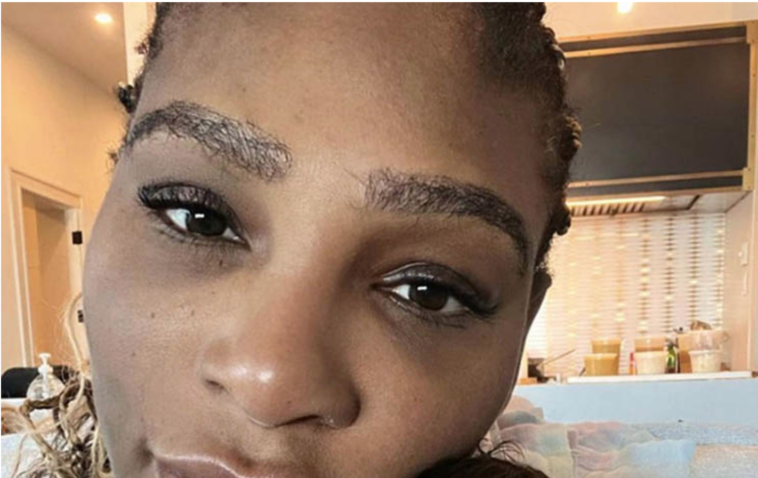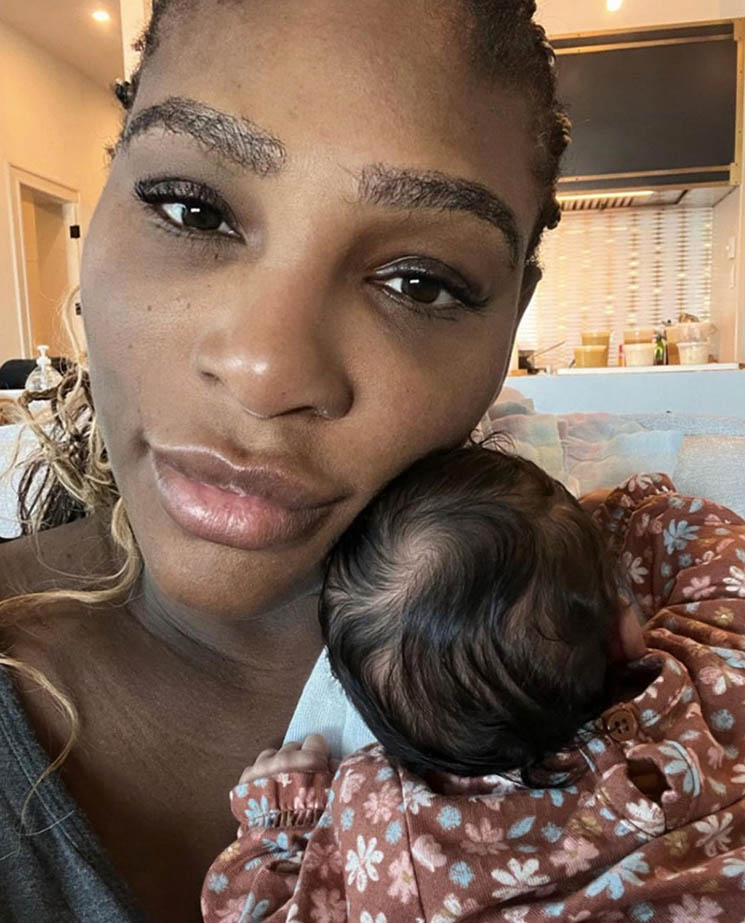

Serena Williams is apparently still in the grip of postpartum depression months after giving birth to her 2nd child.
“I miss me,” she said in an interview on Today with Hoda & Jenna on Thursday.
The 23-time Grand Slam champion said retiring from women’s tennis to be a full-time mom hasn’t been easy.
 The 42-year-old tennis superstar says the months after giving birth to her second daughter have been hard.
The 42-year-old tennis superstar says the months after giving birth to her second daughter have been hard.
Serena and husband Alexis Ohanian welcomed a second baby girl on August 22, 2023. She said she missed being pregnant – a common complaint by most new moms due to the plunge in pregnancy hormones after giving birth.
She said she missed being pregnant – a common complaint by most new moms due to the plunge in pregnancy hormones after giving birth.
“It was all good when I was pregnant and now that I’m not anymore I’m like, ‘Ohhh I miss it so much!’” she said on Today with Hoda & Jenna.
Serena says she keeps herself busy by investing in new companies. But tennis remains her “first love.” “I’m doing so many things with different businesses,” Serena said. “But tennis obviously was my first love and it will always be my first love and it is something I will always be so passionate about.”
“I’m doing so many things with different businesses,” Serena said. “But tennis obviously was my first love and it will always be my first love and it is something I will always be so passionate about.”
She said she misses the attention from playing in front of huge crowds.
“I will never love anything as much as tennis… you’re walking out on center court every day and they’re there to see you. And there’s no adrenaline like that.”
“Everybody misses you,” Hoda Kotb told her.
“I miss me too!” Serena replied. “I miss the outfits. I’m like, ‘Oh, man. I want to wear these skirts again!’ But yeah, it’s not easy, I’m going to be honest. I’m not going to sit here and be, ‘Oh, it’s easy.’ No, it’s hard as, I don’t know how. But I still train and I still love it and I still get around and I still have fun.”
 MEGA/WENN
MEGA/WENNIn November, Serena’s fans were concerned after she revealed her mental status in a post on Twitter/X.
“I am not ok today. And that’s ok to not be ok. No one is ok every single day. If you are not ok today I’m with you. There’s always tomorrow. Love you.”
I am not ok today. And that’s ok to not be ok. No one is ok every single day. If you are not ok today I’m with you. There’s always tomorrow ? Love you.
— Serena Williams (@serenawilliams) November 28, 2023
Postpartum depression (PPD) is a mood disorder that can lead to temporary psychosis. PPD occurs during pregnancy or after childbirth.
Postpartum depression causes severe mood swings, fatigue, spontaneous crying, anxiety, insomnia, loss of appetite and more. It can last 2 weeks or longer.
Health experts say only 1 in 8 women seek help for postpartum depression. They suffer in silence until it affects their work or activities of daily living.
New mothers with postpartum depression are urged to seek help before it becomes severe.
News
Thomas Markle ‘so sad’ he won’t join Prince Harry and Meghan Markle for special occasion
Thomas Markle has been estranged from his youngest daughter Meghan Markle since shortly after her wedding to Prince Harry in 2018. Thomas Markle has never met neither…
Rose Hanbury breaks silence to answer allegations over Prince William affair
There have been an untold number of well-publicized royal scandals over the years, many points in history where the ongoings of the British monarchy have dominated newspaper…
Netflix CEO Snubs Sussexes’ $100 Million Deal: Meghan Markle Faces Rejection from Streaming Giants
SO, BACK IN 2020, MEGXIT HAPPENED. HARRY AND MEGHAN DECIDED TO STEP BACK FROM ROYAL DUTIES, CITING PRIVACY CONCERNS AND A DESIRE FOR INDEPEN… So, back in…
Man Claiming to Be King Charles & Queen Camilla’s Son Speaks Out on DNA Test — Details & His Photos
An Australian’s quest for royal recognition takes a dramatic turn, with a plan to compare DNA with a royal family member at the center. Amidst a backdrop…
Prince Harry and Meghan Markle reportedly face their titles being STRIPPED with the Royal Family’s silent approval
The Palace has be warned that a potential move could spark backlash from the public if it’s given the go ahead. A royal expert has claimed that…
Meghan Markle thinks Prince Harry is making ‘big mistake’ by reaching out to Princess Kate
Meghan Markle is reportedly worried about Prince Harry attempting to reunite with his sister-in-law, Princess Kate, following the news of her cancer diagnosis, as he prepares for…
End of content
No more pages to load





